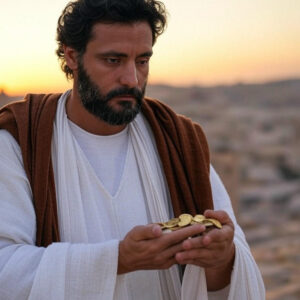Who can resist an invitation to a good party? Each year millions of people attend graduation parties, birthday parties, wedding parties, retirement parties, engagement parties, anniversary parties, sweet 16 parties, costume parties, New Year’s Eve parties, housewarming parties, pool parties, and maybe even a surprise party or two. Perhaps the one party not quite as common as these is the “Conversion Party.” A party like this was hosted many years ago by a disciple named Matthew, also known as Levi.
can resist an invitation to a good party? Each year millions of people attend graduation parties, birthday parties, wedding parties, retirement parties, engagement parties, anniversary parties, sweet 16 parties, costume parties, New Year’s Eve parties, housewarming parties, pool parties, and maybe even a surprise party or two. Perhaps the one party not quite as common as these is the “Conversion Party.” A party like this was hosted many years ago by a disciple named Matthew, also known as Levi.
Matthew, was an interesting man. Perhaps one of the older and wealthier apostles, Matthew lived outside of mainstream Jewish life as a tax collector, or publican. For whatever reason, Matthew decided he would denounce his Jewish background and purchase a tax collecting franchise in the town of Capernaum. As such, he was counted among the vile, despicable, and unprincipled traitors of his day. Tax gathering was not a reputable occupation. When the Roman Cicero presented a list of the most vulgar and unbecoming trades in his day, tax gatherers were among the most reprehensible. These men were so despised that they were religious outcasts, forbidden to enter a local synagogue or the temple Court of Men, a place reserved for Jewish males. That is why in the parable of the Pharisee and the publican, the publican “stood at a distance,” because he was not allowed to enter that area of the temple. Matthew knew it. Notice what he says in his own words about those with whom the tax collectors were included: “Why does your teacher eat with tax collectors and ‘sinners’?” (Matthew 9:11). “You did not believe him, but the tax collectors and the prostitutes did” (21:32). Matthew numbered himself among the lowest sort of people.
Matthew spent his days at the tax gatherer’s booth on the outskirts of Capernaum. His name was likely spoken often by Capernaum residents like Peter, Andrew, James, and John, whose daily catches of fish were taxed by the local tax collector.
Matthew’s conversion was simple. “As Jesus went on from there, he saw a man named Matthew sitting at the tax collector’s booth. ‘Follow me,’ he told him, and Matthew got up and followed him” (9:9). Matthew left the booth, never to return again. But Matthew couldn’t keep this news to himself. He had to share it with his fellow “sinners,” so he decided to have a celebration. His idea of a party was to celebrate his conversion, and Jesus was to be the guest of honor. This was not just a small gathering. “Then Levi held a great banquet for Jesus at his house, and a large crowd of tax collectors and others were eating with them” (Luke 5:29). This was a gathering of the outcasts, the dregs of society, and in their midst was Jesus, the one in search of lost sheep. It was after the complaints came from the Pharisees and even some of John the Baptist’s followers that Jesus told them, “It is not the healthy who need a doctor, but the sick. . . . For I have not come to call the righteous, but the sinners” (Matthew 9:12,13).
Matthew used this moment to show his former world that his life’s search had ended. He had found his hope and salvation, and he was not ashamed to tell his acquaintances. Perhaps some of those present shared Matthew’s enthusiasm and turned their hearts to Jesus as well.
Some traditions tell us that after writing his gospel, Matthew traveled as a missionary to Ethiopia, where he was burned at the stake. Regardless, he was willing to give up his wealth and successful occupation to become a foundation stone in the building of the church of Jesus Christ. Matthew was a truly remarkable man who can teach us all the meaning of following the one thing needful.
Lord, give me the mission zeal that Matthew had, willing to share your love with people from all walks of life. Amen.
